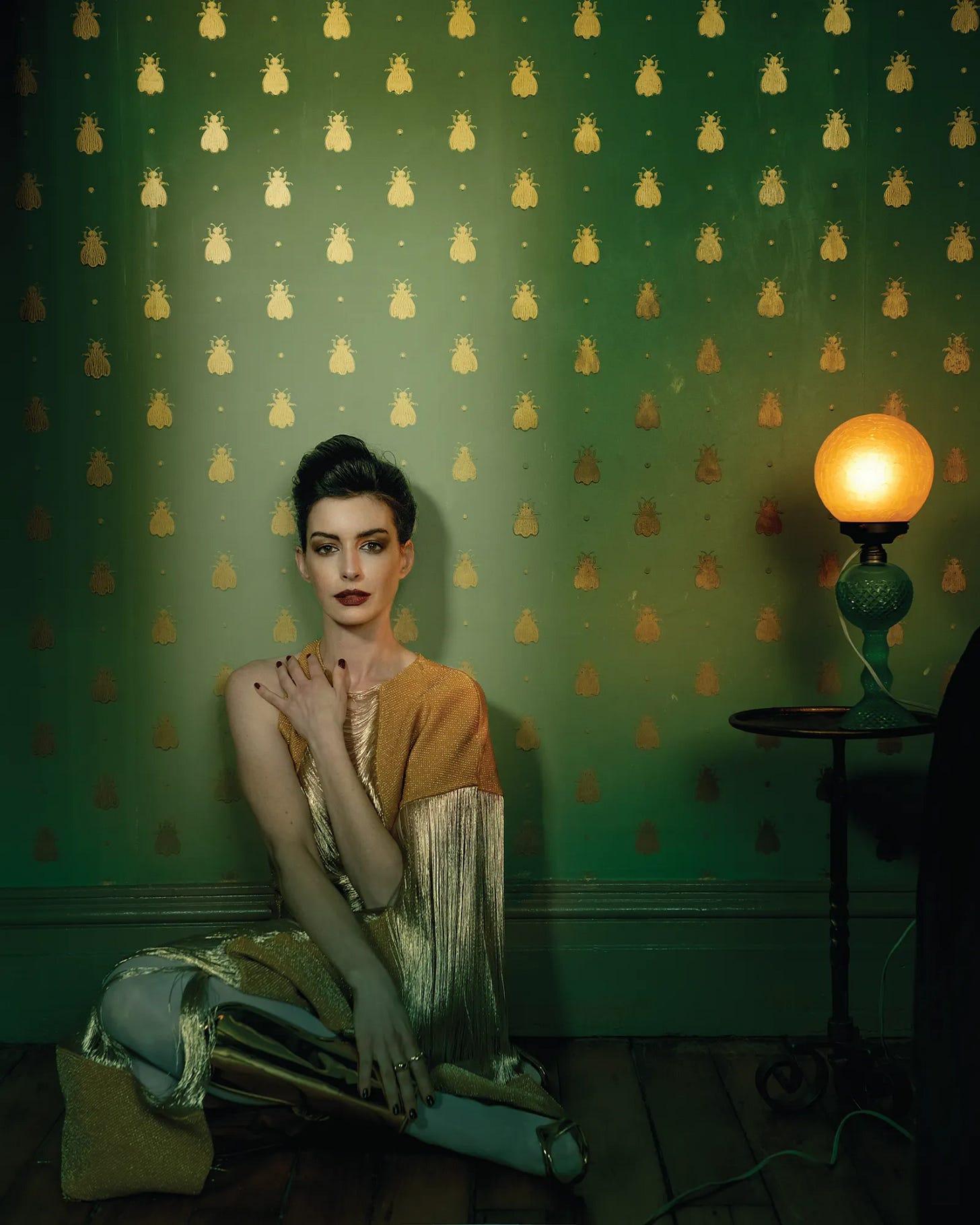We Learned the Wrong Lesson From the Anne Hathaway Hate
#Hathahate may be a thing of the past, but 'too much success' still exists for women
Anne Hathaway dreamed a dream of playing Fantine in Les Miserables — just as her mother did in the first U.S. traveling tour of the show. She got her chance in the 2012 film rendition of Les Miserables. Anne poured everything into that role. She did take after take of the character’s big number, I Dreamed a Dream, nailing it on the fourth try, according to director Tom Hooper. After 20 plus takes he forced her to stop. Anne didn’t want to be a good Fantine, she wanted to be brilliant. She wanted to inhabit the character, understand her pain at a cellular level. It was a demanding role—one that she lost 25 pounds for—against the advice of her director. Her performance was mesmerizing and immediately elicited Oscar buzz.
She cleaned up at awards show and won the Oscar for Best Supporting Actress.
She was at the height of her career.
Offers were drying up.
She was miserable.
Why?
Because the internet, or the media, or a combination of the two, worked themselves into a lather convincing themselves that they hated Anne Hathaway. #Hathahate quickly became a trending hashtag. Why did everyone turn on Anne, the woman many of us grew up with in The Princess Diaries and the heroine in The Devil Wears Prada? What was her ultimate sin?
Well, Anne was just a little too earnest. She tried a little too hard. Her personality was so saccharin that it hurt your teeth. Or, that sweetness was deemed fake. She was disingenuous. The backlash on top of emotionally and physically recovering from playing Fantine led Anne to admittedly fake her happiness over her Oscars win. She told Vanity Fair in their April 2024 profile that she expected, “uncomplicated happiness” and didn’t feel that. Plus, her toxic online identity meant most directors didn’t want to work with her.
A Key & Peele skit summed it up perfectly when they said:
“Why would you be hatin’ on the Hathaways?! Confident woman in Hollywood whose sole character flaw is that she cares too much?”
The hate eventually dissipated. One director, Christopher Nolan, didn’t see Anne as a gamble and she credits him with keeping her career afloat. Now 41, Hathaway has put the vitriol behind her and continues to work as an actress. Her next movie has her pushing back on the notion that women lose their sexuality—become invisible—after the age of 40.
Anne Hathaway, Jennifer Lawrence, and Margo Robbie
The Hathahate might be behind us, but have we stopped punishing female actresses for their success? It’s not like we, as a society, became nicer people on social media. The ingredients for a backlash still exist, female actresses have just learned to course correct before they can become ‘Anne Hathawayed’. We learned the wrong lesson from the Anne Hathaway hate. Instead of structural changes, women did what they usually do; they changed themselves. They removed themselves from the conversation before before backlash set in.
Jennifer Lawrence started to experience this a few years ago. Lawrence rose to stardom with her Oscar nominated role in Winter’s Bone at the age of 19. A few years later she won the Oscar for her role in Silver Linings Playbook.
She was everywhere. That was a problem. In a 2022 New York Times profile about Jennifer Lawrence, journalist Kyle Buchanan writes,
“[…]Lawrence could feel a backlash brewing: She had gotten way too big, and people were eager to bring her down a peg.”
That, coupled with a desire to regroup and take control of her career led Lawrence to retreat from Hollywood.
Despite starring in and producing one of the top grossing movies of 2023, Deadline wrote in Feb. 2024 that:
“Indeed, after the zeitgeist impact of Barbie, Robbie’s last priority is to shepherd more projects that might bring her image back to theater lobbies and billboards anytime soon. ‘Everyone’s probably sick of the sight of me for now,’ she laughs.”
Robbie is at the top of her career and her inclination is to retreat. She may laughingly say people are probably sick of seeing her, but maybe it’s just self-preservation. Based on the evidence of starlets before her, Margo Robbie’s decision makes sense.
Vanity Fair wrote of Anne that:
“In 2022, during a Women in Hollywood speech, Hathaway said that the vitriol toward her cut even deeper because it mirrored her own: ‘This was a language I had employed with myself since I was seven. And when your self-inflicted pain is suddenly somehow amplified back at you at, say, the full volume of the internet…. It’s a thing.’”
How sadly relatable that is, especially to women who are conditioned to believe that part of their value lies in contorting themselves to fit the mold. We bend so that society doesn’t have to. The lesson we took away wasn’t that we need to change how we view famous women vs. famous men. I personally haven’t seen any chatter that Jacob Elordi, who was in two movies in 2023 that garnered awards buzz—Priscilla and Saltburn—should take a step back or risk being overexposed.
Men are passionate. Women are overeager. Men are prepared. Women are try-hard. A difficult personality for men is often written off as part of his “genius”. A reasonable tradeoff for such talent. Rarely does a woman receive that kind of grace.
It’s a reminder too that while conservatives will decry that women’s movements—like MeToo—threaten to go too far—they rarely do.
And how quickly we forget.
-Meredith







